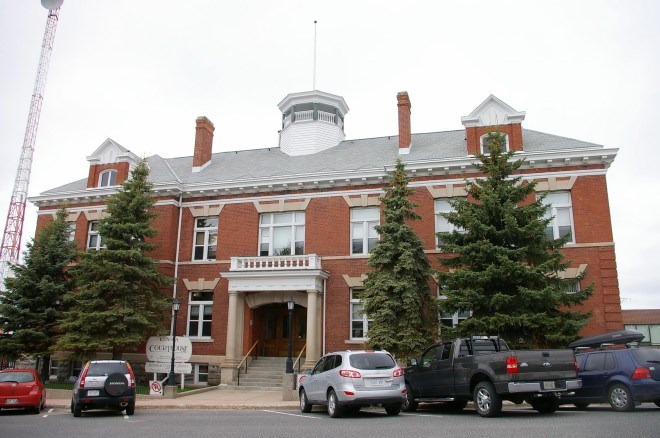KENORA — A First Nation community along the Ontario and Manitoba border is suing the federal government and city of Winnipeg for a water project dating back more than 100 years that it alleges continues to negatively impact the community to this day.
Shoal Lake #40 First Nation filed a statement of claim in the Ontario Superior Court last week that is seeking compensation for damages resulting from a 1915 water diversion system on Shoal Lake to provide water to the city of Winnipeg.
As part of the construction on the water diversion system, a canal was built between Indian Bay and Snowshoe Bay on Shoal Lake, which left the community isolated on a man-made island.
“For more than a century, the community could only be reached by ice road in the winter or boat in the summer. Families were forced to relocate off-reserve to access basic health services and educational and professional opportunities,” the statement of claim reads.
“Costs associated with transporting building materials to the reserve soared, and the community struggled to maintain critical infrastructure, including roads and schools. In late fall and early spring, community members fell through the ice while trying to cross to and from the mainland.”
The statement of claim goes on to say that Shoal Lake #40 First Nation has not been compensated for “injurious affection or interference with its reserve lands” nor has Canada “taken steps to protect Shoal Lake #40’s interests from the profound and disruptive effects of the Waterworks on Shoal Lake #40’s reserves.”
Shoal Lake #40 First Nation is alleging the federal government breached its fiduciary duties to the community and the city of Winnipeg breached its obligation to compensate the First Nation for negative impacts the water diversion system.
Located on the Ontario and Manitoba border west of Kenora, Shoal Lake #40 First Nation is part of Treaty #3 signed in 1873.
“On entering into Treaty #3, the Crown promised, inter alia, to set aside reserves for Shoal Lake #40’s use and benefit, and to protect Shoal Lake #40’s rights to hunt, fish and trap through the treaty territory, including in respect of the lands and waters in and around Shoal Lake,” the statement of claim reads.
“The written English text of Treaty #3 as published by Canada further provides that ‘due compensation’ would be paid to Shoal Lake #40 for the taking or appropriation of reserve lands required for public works.”
The statement of claim says the water diversion system operated by the city of Winnipeg continues to have negative impacts on the community of Shoal Lake #40 First Nation, including disrupting and damaging areas used for cultural and traditional practices.
“This in turn negatively affects Shoal Lake #40’s ability to maintain its connection and relationship with the lands and waters in and around Shoal Lake, including members’ ability to pass on traditions, teachings, practices and cultural knowledge to younger generations,” the statement of claim reads.
“Shoal Lake #40 has never been compensated for injurious affection or ongoing interference with its reserves as a result of the construction and operation of the Waterworks.”
Shoal Lake #40 First Nation Chief Kevin Redsky said in a statement that the people of his community should not have to risk their survival so Winnipeg can divert water.
The community had been under a boil water advisory for 24 years before being lifted in 2021 upon completion of a new water treatment facility. The community also completed construction on a road connecting it to the Trans-Canada Highway in 2019.
“Our people have done what we must to survive. We’ve had to fight long and hard for the essentials of safe access and clean drinking water,” Redsky said. “We’ve put our survival needs first and now we’re in a position to seek justice and equity for the harm that was inflicted on our community for so many years.”
Indigenous Services Minister Patty Hajdu was asked about the lawsuit during a conference call with Dougall Media on Wednesday.
"Shoal Lake #40 is a good example of water inequity that had happened to a community over a number of decades," Hajdu said, adding she visited the community earlier this year. "The harms that happened are real. I can't comment on the lawsuit, but I can say significant investments in Shoal Lake have made the quality of life much better there. In fact, when I was there, members were coming back to community to live and to work.
"There are lots of great things happening but it doesn't erase the pain and suffering."
